- Home
- Tanya Anne Crosby
The Holly & the Ivy (Daughters of Avalon Book 2) Page 2
The Holly & the Ivy (Daughters of Avalon Book 2) Read online
Page 2
As for the Battle of the Standard, Malcom only rarely spoke of it and Elspeth never asked—not because she didn’t care to hear his accounts, but because his aura always shifted from the placid hues that were his normal shades to hues of red and black. She could detect these dark threads in his aura even now, and therefore when Malcom fell into silence, she let him brood. She loved him well enough to not wish him to have to suffer his ill-begotten memories, and neither would it suit anyone who must abide his presence thereafter. As wife to an Earl, she had a duty to her people—far more so than she’d ever had as the ill-conceived daughter of a King. As for her husband, his present days were fraught with so much tension, councils with David of Scotia, councils with the northern castellans, and councils with some of Matilda’s emissaries. If only for a short time, she would have him forget the strife that awaited. England, alas, was suffering a calm before the storm, and loyal subjects like Malcom were caught in a tempest, but the day would soon arrive when peace was restored. Until that day, Elspeth was pleased Malcom could enjoy a heartfelt reunion with the family he adored.
She tried to imagine what Page FitzSimon must be like, and thought she could envision the lady simply by the accounts she’d been given. Always, Cora had had so much to say about the lady, and Elspeth hoped with all her might that the daughter of Aldergh’s first lord would appreciate the gifts they were bringing—a coffer full of her mother’s belongings, including many of Lady Eleanore’s dresses and a brooch etched with the image of Saint Ninian. Cora claimed that Page used to steal into her mother’s room to wear it, and rather than give it to her after her mother was gone, her father secreted it away—along with all the rest of her mother’s belongings. What a miserly bastard.
Alas, the closer they came to his birthland, the quieter Malcom grew, and Elspeth sensed he was trying to make peace with himself before their arrival. One way or another, he must endeavor to forgive himself. And better now than later. She contented herself with her reverie, enjoying the sights, and little by little, as they rode northward, the woodlands gave way to craggy moorlands, and finally, just before the gloaming, they caught sight of a rugged fortress high atop a cliffside. From Elspeth’s vantage, the sight took her breath away.
“Chreagach Mhor,” Malcom said, reining in his mount.
Elspeth, too, halted, and, without a word, their companions did so as well. The wagon behind them squealed to a laborious halt, and after a moment, she could feel the swell of Malcom’s changing aura envelop her—a heady mixture of excitement, nervousness and pride—the pale orange she’d come to know and love, with hints of blue, like the colors of a low-burning flame. “Art ready?” she asked.
He turned to face her with a grin, and said, “Never more.”
Chapter Three
As the small cavalcade slowly ascended the hill, kinsmen came out from their croft houses, waving as they passed. Some gathered up their younglings and followed to the house.
From below, the single tower overlooking the cliff had given Chreagach Mhor a sense of imperiousness. High atop the hillock, the manor house seemed a far humbler abode. The tower, taller than the house itself, was fashioned of gabled stone, but the attached house looked more like the dry stone cottages they’d encountered on the way up, only covered with brambles—as though the Goddess herself had cast a net from the earth to protect them. Tangled and taut, thick vines climbed about, with thick stems that gave it a sense of age.
Someone shouted huzzahs, and within moments, the occupants of the manor filed into the courtyard, and realizing this was the moment of truth, Elspeth’s belly fluttered, but this time, not because of the babe. Had they heard the tales of their encounter with Morwen at Aldergh? Would they think her blasphemous? Did they fear witches? It gave her hope that Iain had already embraced her.
Malcom slid down from his mount, and with his help, Elspeth dismounted as well. But no sooner was she down when Malcom had a tap on the shoulder, and he turned about.
“Mother!” he exclaimed, releasing Elspeth and lunging forward to embrace the chestnut haired woman, enveloping her in his burly arms. He lifted her high, then kissed her soundly on the forehead.
“Malcom!” she exclaimed, when he put her down again, and she reached a hand to caress his brow, brushing the hair from Malcom’s face, her smile radiant and her touch every bit as reverent as it should be.
“Where’s Da?”
“Gone to Piers to purchase salt. Somehow ours has gone missing.”
“It wasn’t me,” Malcom said, with a devious grin, and then he turned to Elspeth, retrieving her trembling hand. He explained, “Precious as it was, I used to put my finger in the jar and lick the granules one by one.”
Elspeth giggled. “I would have done the same.”
If ever they’d had salt. It wasn’t an ingredient old Ersinius would have shared, and neither would they have wasted such a precious condiment on mere children—not even royal ones.
Easing Elspeth’s worries a bit, Page couldn’t have been more welcoming. Precisely as she had with Malcom, she reached out to put her arms about Elspeth, though Elspeth’s belly prevented a close embrace. “Oh, my dear,” she said, grinning. “You look ready to burst!”
Elspeth laughed softly. “I merely look it,” she assured the elder woman. “If my calculations are correct, I am a good two months away. If not, perhaps a few weeks more.”
Page shook her head. “Oh, I do wish you’d stay long enough to deliver. What joy it would bring our house.”
Elspeth’s gaze lifted to Malcom’s, wondering if he might agree.
“We’ll consider it,” he said. “Times are grave.”
“I ken,” said Page. “I ken.” And her smile remained brilliant, despite her son’s rebuttal. “Well,” she said, taking Elspeth by the hand. “My dear, at least you do not look like a mess of haggis. I certainly did.” She leaned close to say, “With my daughter Liana, I was swollen for months. My ankles were as large as trunks.”
There was a sudden squeal behind her as Cora woke and leapt from the wagon, rushing to join them. Elspeth only wished she had the means to capture Page’s expression for posterity. As though her smile were not bright enough already, her face lit, and she let go of Elspeth’s hands, rushing to embrace Cora. The two women locked themselves together and swayed side to side, laughing like young ladies. “Cora! Cora! Cora! Is it you?”
“Tis me, sweet Lady,” Cora said, reaching up to put thick hands to Page’s face, the familiarity of the act hardly lost to Elspeth. And then came another loud squeal and a younger woman came rushing out to embrace Malcom. Elspeth might have been jealous, because she was beauteous, but she assumed this must be Liana, her face was so much like her mother’s.
After a moment, when Malcom was through extricating himself, he introduced his sister to Elspeth.
“Hello,” said Elspeth, surprised by the woman’s age, though she shouldn’t have been. Malcom was thirty now; it only stood to reason that Liana would be closer to Elspeth’s age. It was only that he’d never, ever spoken of her as aught but a child.
“Hello,” said Liana, arms wide. “Welcome, sister.”
The two awkwardly embraced, and then, for some reason, very suddenly, both Liana and Elspeth began to giggle, and Malcom said, grinning, “Well, now, I should leave you ladies to your affairs and settle the wagons.”
His mother whirled on him. “No, Malcom, wait! I must introduce you to Alex—where is he?” she asked, her gaze darting about, until she spied him—tall for his age, and perhaps a bit lanky, but nevertheless had a young boy’s face. And he was scowling.
His mother waved him forward, and he shook his head, snarled, and turned away. Elspeth’s gaze sought her husband’s to catch his expression—surprise and sorrow.
“He’ll come about,” said Page, gripping her son by the arm. “Go, now, settle your wagons. We’ll show Elspeth your bower.”
His face a mask of regret, Malcom stood, looking after Alex, long after the boy quit the doorway
.
“Go on,” his mother said, once again, pushing him gently. “I’ll speak to him,” she promised. “Do not worry, Malcom.” And her smile brightened. “Your father will be beside himself! We did not expect you until the morrow.”
And still Malcom stood, ogling the empty doorway, his lips twisting ruefully, and sensing his disappointment, Elspeth went to him, nestling her hand into his. He squeezed her fingers gently, and shook off the mood, turning to kiss her on the lips, his eyes crinkling at the corners. “Dinna go tellin’ my minny all those terrible things I say and do.”
Elspeth laughed, lifting her chin. “Of course, I will,” she jested, and blew him a kiss, waving him away.
For a moment, she watched him go, seizing the reins of her palfrey and his own horse to lead them to the stables, and then she met Page’s gaze. Of course, Page would understand. The two women shared a knowing glance, and then she and Page, with Liana and Cora, all moved into the house, Cora gushing, and Liana still giggling—until, Elspeth tripped and said, “Ouch!”
She lifted her foot to find a small trickle of red at the tip of her slipper, and everyone who saw it frowned. At once, Liana dove into the rushes and rose with a small crude knife in her hand. She sought her mother’s gaze, and the two women frowned.
Elspeth was quick to reassure them. “It was only a prick,” she said. “I am fine.” And no matter, once she was alone in her room, she’d apply herself to its healing. No harm was done.
Chapter Four
Inside the manor house, the scent of freshly cut evergreens was pungent, but the visual effect was stunning. Elspeth assumed it must be a Scot’s tradition to adorn the house for the Yule Sabbat. Every mantle, every shelf and wall was festooned, and she must endeavor to do the same for Malcom next year if they remained at Aldergh. For all the holly and ivy, there was no denying the sight of so much green made her happy, even if the scent was so pervasive.
Alas, though she wondered why the boy—who she assumed must be Alex—spied on them through cracks in the doors, his expression full of resentment, she didn’t let him dampen her mood, nor rob her of her smile. Somehow, against all odds, she’d found herself another sister in Liana, and so she put young Alex out of her mind, telling herself it was a function of his youth. Whatever was bothering the boy, time would address the problem, and perhaps he didn’t enjoy strangers in his home—blood kin or nay.
After showing Elspeth the room she would share with Malcom, Page and Liana led her back into the kitchen, introducing her to Auld Glenna, then insisted she sit on her rump, finding her a sturdy chair and filling her hands with dough—why, she didn’t know. She squeezed the dough into a ball as Liana hoisted her bottom onto one of the counters—a very unladylike position—then sat talking to Elspeth from that vantage, asking every sort question.
“Tell me about Aldergh, Elspeth. Is it truly a Roman citadel? How old is it? How many rooms? Do you find there are ghosts? Mother claims it must be full to the rafters.”
“There were for me,” Page said, as she stood opposite Glenna at the worktable, the two of them braiding long strands of dough.
Elspeth put a hand to her belly, rubbing. “I’ve encountered none, so far,” she said carefully, wondering if they must believe she should see them because she was a witch. Regardless, that particular subject was never even broached, and, instead, Elspeth found herself wondering what witchery these ladies possessed to braid the soft dough so masterfully, and so swiftly. It was amazing to see how quickly their hands worked. Elspeth watched, mesmerized.
“I don’t know precisely how old it is, but Malcom says it was built around the same time as York was, though, unlike York, Aldergh was destroyed before the Roman’s departed.”
“Aye,” said Page. “With King Henry’s blessings, my Papa seized upon its potential. He rebuilt it from ruins. I remember well running through a maze without ceilings.”
“Well, you should see it now,” said Elspeth. “When did you last visit?”
Page wiped her hands on a towel. “Many, many years ago, when my son took it. I have not seen it since.”
“’Tis quite grand now,” said Elspeth. “More so than any home I ever knew before.”
Liana furrowed her brow. “But, I thought your father was—”
Elspeth tilted her head. “King?” She laughed softly. “Much good it should do me. My sire was good and kind to me, always, but children were to be seen and never heard.” She sighed. “I warrant even Matilda did not see him overmuch until she was of an age—and likely not till she returned from Germany with a crown.”
“And then, I hear tell she made her will known,” said Page, laughing.
“Is she truly so haughty?” asked Liana.
“Haughty?” Elspeth considered the question. “Nay,” she said. “But, again, I was raised with…” She peered around the room, hoping not to offend any of these women. “…different sensibilities.” In fact, her grandmother had imbued her, not only with strong Welsh principles, but as a dewine, and according to her coven, women were in so many ways superior to men. “Rather, I would say… the English do not particularly value their womenfolk. Matilda is certainly no shrinking violet.”
“And neither do you seem to be,” said Page. And Cora, who was flitting about the kitchen, tidying where she could, agreed. “I promise you she is not!”
Elspeth smiled, wondering what they would think of her sister Rhiannon, who spoke her mind far more plainly than she.
“’Tis little wonder my son adores you,” said Page, smiling.
“He was raised by strong women,” interjected Glenna.
His sister added, “My Da likes to say my mother whips him aboot by his willie.”
Page laughed. “Liana! You mustn’t repeat such things!”
“Why not? Tis true,” said Liana, winking at Elspeth. And then she changed the subject entirely. “I simply canna wait! Tomorrow, we’ll celebrate Feill Fionnain with a bonfire. My Da builds the biggest bluidy fires ye could e’er imagine.”
Elspeth’s gaze turned to her sister by law. “Feill Fionnain?”
“Our winter’s solstice.”
Elspeth blinked. “You celebrate the solstice?”
“Ach, lassie, O’ course, we do,” said Glenna. “We’re no’ ignorants!”
Elspeth blinked again, wishing she could take back her question. She bit nervously into her glob of dough, and said, “Of course not, but I thought—”
“Here in the north, we’re no’ so much inclined to abandon our Old Ways,” explained Page, working another loaf. “It surprised me, too, at first, because, though my papa was not a pious man, he did have the utmost respect for the edicts of Holy Church. Rather, tisna so much we mean to flout Holy edicts…” Her hands moved deftly, little by little, braiding her strands. “…we simply are not in any hurry to anger the divinities who’ve seen us through so much.” She smiled, pinching the ends of her loaf together to form another wreath. “After all, we see no reason they cannot abide together—like men and women.”
Elspeth smiled. Of course, she believed the same. All the while she and her sisters had lived at Llanthony Priory, they had never once felt it a burden to pray alongside the priests. However, the priests, themselves, had so much to complain about.
“How’s the taste?” asked Glenna, changing the subject, eyeing Elspeth discerningly.
Elspeth took another small bite, and made a face—too salty. Glenna seized the dough from her hand and bit into it, herself, making a disgusted face and shaking her head. She muttered something inaudible, then brushed her fingers along the loaves, saying something, to the best of Elspeth’s discernment, like, “Ut dulce sit.”
Make it sweet.
She narrowed her eyes, watching the woman… because… she was either praying that the other loaves wouldn’t be so salty, or she was… but nay.
“Tell me aboot my brother?” demanded Liana, recapturing Elspeth’s attention. “Is he so terribly vexing as he used to be? He used to chase me aboot,
insisting I do what he bade.”
Page laughed, despite the arched brow. “Only because I commanded him to, Liana. You were ne’er so sweet and innocent as your Da should like to believe.”
Like a wee girl, Liana swung out her legs, and said, “Aye, Ma, but let us continue to keep it a secret,” she said, giggling. “I’d no’ ha’e Papa believe otherwise.”
“An’ well ye would like that, wouldn’t ye, vixen,” said Glenna, clucking her tongue, until the women laughed, and Liana lifted her chin.
“O’course,” she said with an impish grin. “But, o’course!”
Chapter Five
December 22 1148
The Winter Solstice marked the shortest day and the longest night of the year, when the day descended into darkness and the night grew cold and long. But, from this point forward the days grew longer, and the nights grew shorter. As a dewine, this time was known to her people as the twilight of the year, the time between times. It was a time for rebirth, a time for atonement. Therefore, their Feill Fionnain was little different from her own Yule Sabbat.
To brighten the endless night, Elspeth witnessed a true northern tradition: the lighting of the cruach-theine—the bonfire. Indeed, as Liana had proclaimed, it was the biggest conflagration she ever did see. Enlisting the help of his burliest clansmen, they felled entire trees and arranged them carefully, so that, once lit, the flames shot as high as the pinewoods themselves. Father and firstborn son hoisted the last of the Yule logs, hurling it into the wood stack as though it were no more than a twig, and then each patted the other on the back.

 Lord of Shadows (Daughters of Avalon Book 5)
Lord of Shadows (Daughters of Avalon Book 5) To Love a Lord: A Victorian Romance Collection
To Love a Lord: A Victorian Romance Collection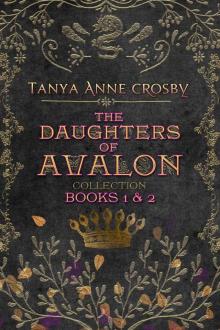 The Daughters of Avalon Collection: Books 1 & 2
The Daughters of Avalon Collection: Books 1 & 2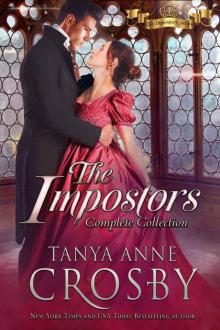 The Impostors: Complete Collection
The Impostors: Complete Collection The Holly & the Ivy (Daughters of Avalon Book 2)
The Holly & the Ivy (Daughters of Avalon Book 2)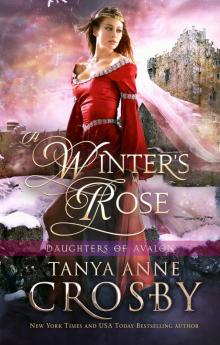 A Winter’s Rose
A Winter’s Rose Fire Song (Daughters of Avalon Book 4)
Fire Song (Daughters of Avalon Book 4)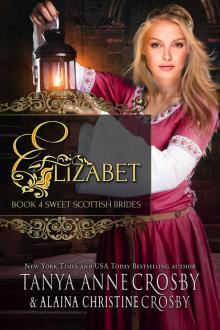 Elizabet
Elizabet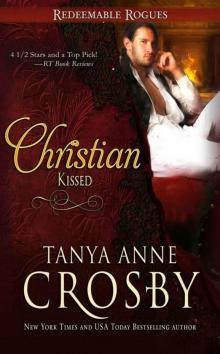 Kissed; Christian
Kissed; Christian Once Upon a Knight
Once Upon a Knight Viking: Legends of the North: A Limited Edition Boxed Set
Viking: Legends of the North: A Limited Edition Boxed Set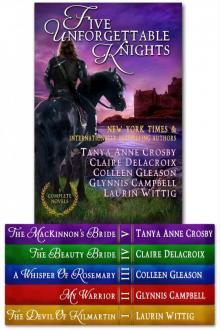 Five Unforgettable Knights (5 Medieval Romance Novels)
Five Unforgettable Knights (5 Medieval Romance Novels)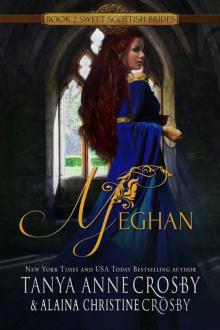 Meghan: A Sweet Scottish Medieval Romance
Meghan: A Sweet Scottish Medieval Romance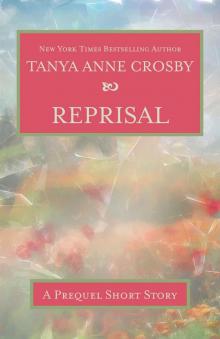 Reprisal: A Prequel Short Story to REDEMPTION SONG
Reprisal: A Prequel Short Story to REDEMPTION SONG Highland Song
Highland Song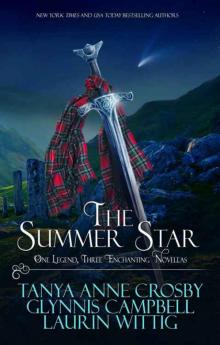 The Summer Star: One Legend, Three Enchanting Novellas (Legends of Scotland Book 2)
The Summer Star: One Legend, Three Enchanting Novellas (Legends of Scotland Book 2) Once Upon a Kiss
Once Upon a Kiss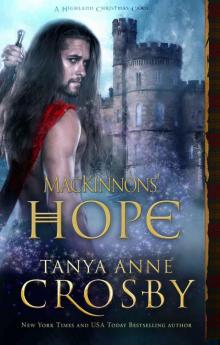 MacKinnons' Hope: A Highland Christmas Carol
MacKinnons' Hope: A Highland Christmas Carol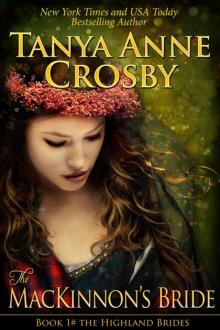 The MacKinnon's Bride
The MacKinnon's Bride Highland Brides 04 - Lion Heart
Highland Brides 04 - Lion Heart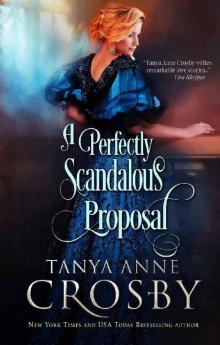 A Perfectly Scandalous Proposal (Redeemable Rogues Book 6)
A Perfectly Scandalous Proposal (Redeemable Rogues Book 6) Reprisal
Reprisal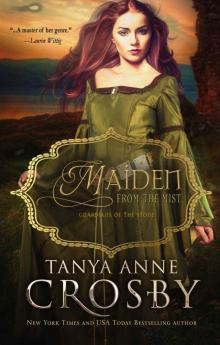 Maiden from the Mist (Guardians of the Stone Book 4)
Maiden from the Mist (Guardians of the Stone Book 4)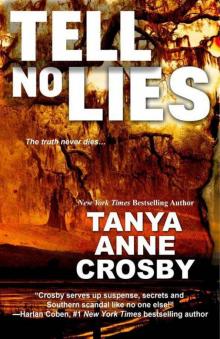 Tell No Lies
Tell No Lies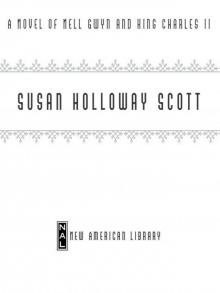 The King's Favorite
The King's Favorite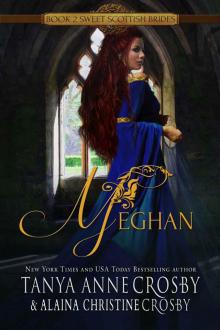 Meghan: A Sweet Scottish Medieval Romance (Sweet Scottish Brides Book 2)
Meghan: A Sweet Scottish Medieval Romance (Sweet Scottish Brides Book 2)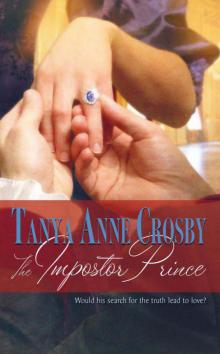 The Impostor Prince
The Impostor Prince Happily Ever After
Happily Ever After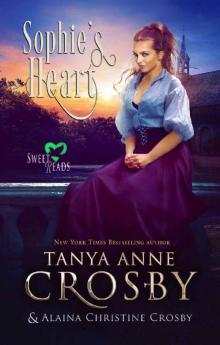 Sophie's Heart: Sweet Historical Romances
Sophie's Heart: Sweet Historical Romances Viking's Prize
Viking's Prize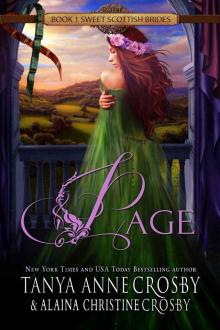 Page
Page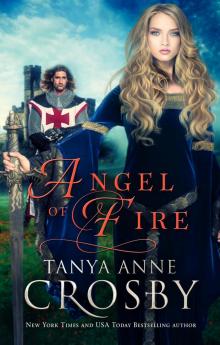 Angel of Fire
Angel of Fire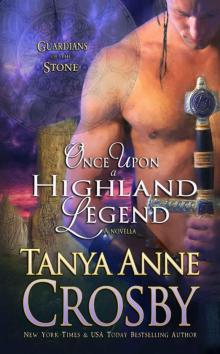 Once Upon A Highland Legend
Once Upon A Highland Legend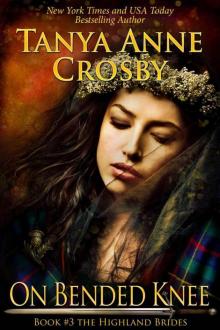 Highland Brides 03 - On Bended Knee
Highland Brides 03 - On Bended Knee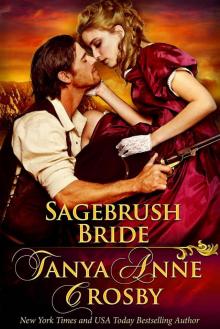 Sagebrush Bride
Sagebrush Bride Lyon's Gift
Lyon's Gift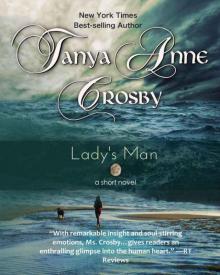 Lady's Man
Lady's Man The King's Favorite (Daughters of Avalon Book 1)
The King's Favorite (Daughters of Avalon Book 1)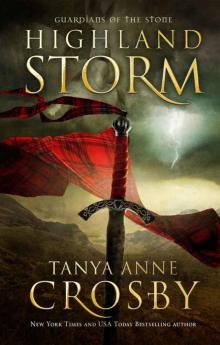 Highland Storm
Highland Storm Redemption Song
Redemption Song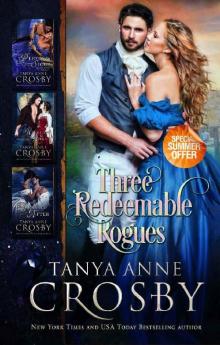 Three Redeemable Rogues
Three Redeemable Rogues